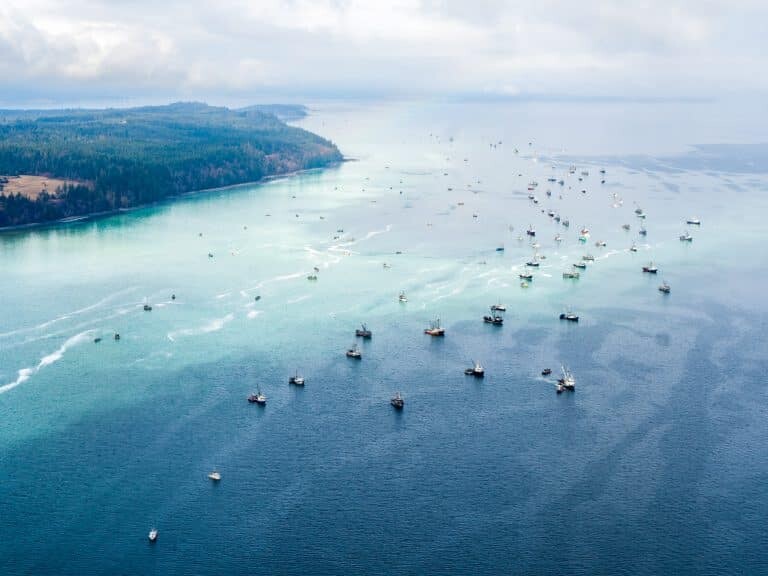The Pacific herring fishery in British Columbia’s Strait of Georgie has become a focal point of intense debate between ecological conservation and economic interests. Recent decisions by Fisheries and Ocean Canada (DFO) to increase herring harvest quotas have elicited both support and strong opposition from various stakeholders.
In February 2025, DFO announced an increase in the commercial Pacific herring harvest quota for the Strait of Georgia, permitting the catch of over 10,850 metric tonnes. This decision aligns with DFO’s assessment that herring stocks are at “historically high” levels, based on data dating back to 1950. The department maintains that the commercial fishery will leave approximately 80 percent of the estimated spawning biomass in the water, ensuring sufficient herring remains to spawn and sustain future fisheries.
The British Columbia Seafood Alliance, representing a significant portion of the province’s commercial fishing industry, has endorsed the DFO’s decision. Rob Morley of the Herring Conservation and Research Society emphasized that fisheries management decisions should be grounded in solid, peer-reviewed science rather than public opinion, according to SeaWestNews. He further noted that herring stocks are highly dynamic, with fluctuations primarily due to natural mortality factors, and that a lower harvest rate would not necessarily yield better biological outcomes but could adversely affect coastal communities, many of which are Indigenous.
Indigenous leaders and environmental organizations have expressed grave concerns over the increased herring harvest. In November 2024, six WSÁNEĆ hereditary chiefs called for an immediate 20-year moratorium on herring fishing in the Strait of Georgia, citing the species' critical role in sustaining Pacific salmon, orcas, seabirds, and other marine life. They argued that the continued exploitation of herring threatens the broader marine ecosystem and the cultural and economic well-being of Indigenous communities.
Environmental organizations, such as Pacific Wild, have also criticized the DFO’s decision, highlighting a reported 60 percent decline in herring populations between 2016 and 2020. They contend that the current harvest rate is unsustainable and undermines conservation efforts aimed at preserving the species and the myriad marine creatures that depend on them.
Economic implications and further conservation concerns
The herring fishery is economically significant, generating approximately $50 million for fish harvesters and processors in 2017 and 2018. It employs during periods when few other fisheries are active, with at least 40 percent participation by Indigenous fishermen. Communities like Alert Bay on Vancouver Island rely heavily on the herring fishery for their livelihoods.
However, according to Pacific Wild, critics argue that the ecological importance of herring as a foundational species in the coastal food web outweighs short-term economic gains. They warn that continued overfishing could lead to the collapse of herring stocks, with cascading negative effects on predators such as salmon, whales, and seabirds. This would ultimately impact the broader marine-based tourism industry, which contributes significantly to the British Columbia economy as well.
The dispute over the herring fishery in the Strait of Georgia shows the fine line between balancing the immediate economic needs of coastal communities with the long-term sustainability of marine ecosystems. As the DFO proceeds with its current management plan, the concerns raised by Indigenous leaders and environmental groups weigh the need for ongoing dialogue and adaptive management strategies.







